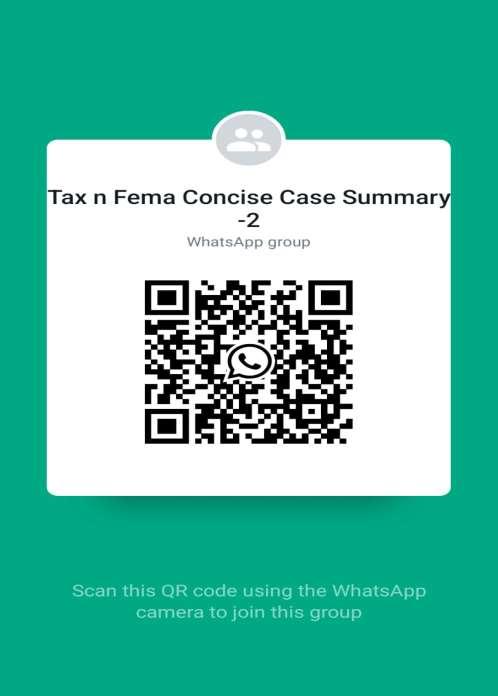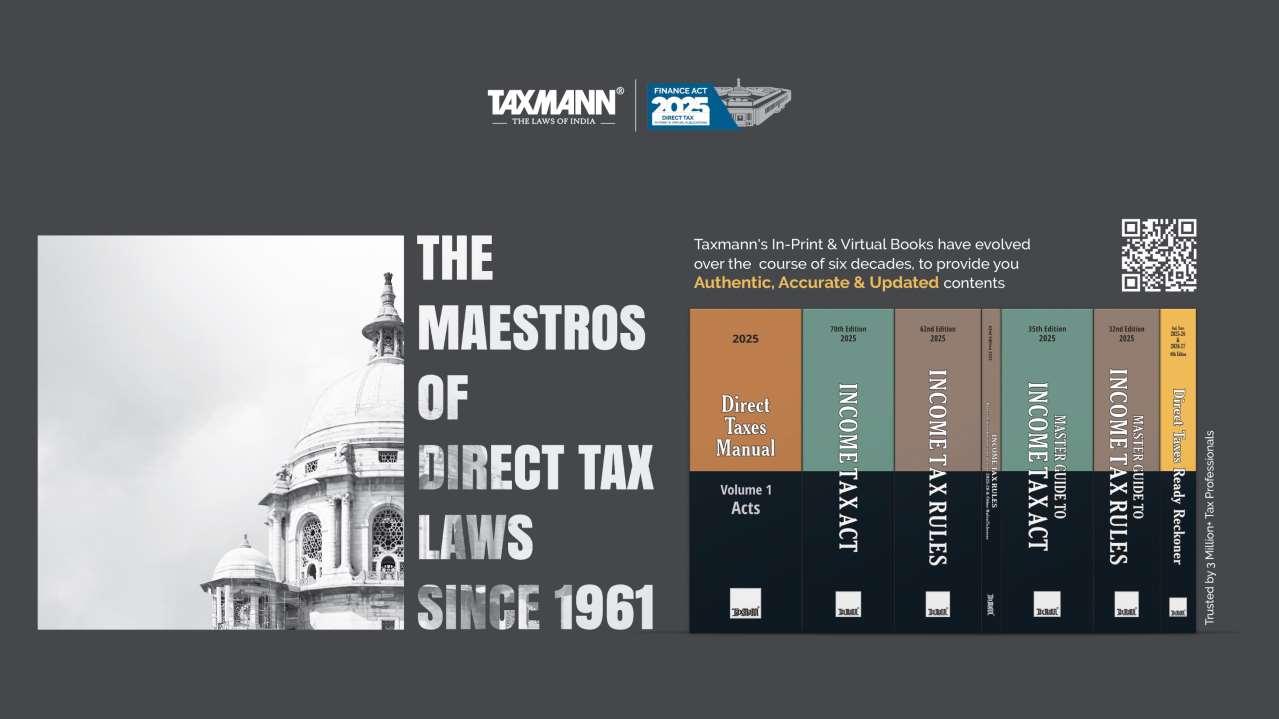






BY CA DARSHAK SHAH


Analysis of key rulings and how legal interpretations influence case outcomes. 3. Strategic planning, case preparation, and effective argument presentation in disputes. 4. Identifying grounds such as limitation, lack of evidence, and prior assessments to contest proceedings. 5. Using intent, strategic reasoning, and documentation to build fact-based defenses.
Classification of foreign share transactions, related tax treatments, and common procedural challenges.
TDS applicability and foreign share transactions.


• Issues in hand to be proved by AO :-
- The investment involves a shell company with no real assets or business, suspicious bellshaped price movements, KYC violations by brokers, regulatory actions, admissions by involved entities, and financial trail inconsistencies revealed through backward bank account tracing.
• Identifying the bogus LTCG/STCL/LTCL :-
- The taxpayer reports disproportionately large LTCG/STCL/LTCL from one or two volatile scrips with abnormal price fluctuations, and holding periods strategically timed to barely meet tax exemption or benefit thresholds.
• Gathering the information available in public domain :-


- Comprehensive analysis involves reviewing financial results, historical price trends, daily trading data, shareholding patterns, past trading restrictions by regulators, and inputs from the Investigation Wing.
• Information to be collected from assessee :-
- Demat account details, history of share transactions in earlier years, instances of crystallization of extraordinary income, the nature of regular business activities of the assessee or related entities, and the source of the purported initial investment to trace any unaccounted cash.


• Information to be gathered from other sources:
- Complete details of the assessee’s share transactions from the broker, including Demat account records, KYC documents, contract notes, trading ledgers, trade data from BSE/NSE for specific scrips, and conduct a backward probe of counterparties’ bank accounts to trace the flow of funds.




1) Fundamentals Weak :-
Case Law : Manish Devendrakumar ShahVs ITO [2025] 172 taxmann.com 466 (Ahm -Trib.)
Held that, the financial turnaround of LHSL, as evidenced from the Assessing Officer’s own findings, shows an increase in net worth, book value, and EPS, which indicates that the company had improving financial fundamentals.The Assessing Officer failed to appreciate these positive indicators, which weakens the conclusion that LHSL was a penny stock with no intrinsic value. [In favour of assessee]
Case Law : Farzad Sheriar Jehani Vs ITO [2024] 159 taxmann.com 9 (Mum - Trib.)
:
The example of shares of Zomato Ltd. is one such example. Despite having loss of Rs. 12,225 million for the year ended 31 March 2022 and Earning per Share (EPS) of minus Rs. 1.67, the shares of Zomato Limited have traded at a considerable value reaching a peak of Rs. 154.70/- on 18th November 2021.
The performance of Zomato Limited for the year ended 31 March 2022 was worse than its performance for the year ended 31 March 2021, despite which the price of the shares was high and even showed an increase. [In favour of assessee]


Case Law : Farzad Sheriar JehaniVs ITO [2024] 159 taxmann.com 9 (Mum -Trib.)
The alleged directions issued by SEBI are not available in public domain.The AO has not brought on record what those alleged SEBI directions were and how the Appellant was connected with the same. The alleged BSE notice is also not available in public domain.
The AO has not brought on record any material to show how the alleged counter- parties were also parties to the arranged transaction. It is not the case of the AO himself that any action had been taken by SEBI or the Income-tax Department against any of these alleged counterparties.
[In favour of assessee]


Case Law :Archit Gupta Vs ACIT [2024] 168 taxmann.com 219 (Delhi - Trib.)
In this background, the only logical recourse would be to place reliance on the orders passed by SEBI pointing out the malpractices by certain parties and taking action against them. In this case, no adverse inference in regard to the scrip M/s Wagend InfraVenture Ltd in context of SEBI report etc., finds place in the reassessment order or the CIT(A) order and thus the transaction carried out by the assessee cannot be termed as bogus.
[In favour of assessee]


3) Investigation Report and direct NEXUS :-
Case Law : Manish Devendrakumar ShahVs ITO [2025] 172 taxmann.com 466 (Ahm -Trib.)
In case of Jayantilal Panachan Shah v. PCIT, ITAT Ahmedabad – ITA No. 627/Ahd/2024, the Co-ordinate Bench held that stock price movements alone could not be a ground to hold transactions as accommodation entries.The department was required to establish a direct nexus between the assessee and the alleged price manipulation, which was absent in this case. [In favour of assessee]
Case Law : PCIT Vs Renu Aggarwal [2023] 153 taxmann.com 579 (SC)
AO made additions, alleging involvement in penny stock which were being misused for providing bogus accommodation of LTCG, however, there was lack of adverse comments from stock exchange and officials of company involved in these transactions and no material relating to assessee was found in investigation wing report, additions made by AO had rightly been deleted. [In favour of assessee]


4) Basic Data (Contract notes, Demat shares, STT paid, Bank payments and their source proved) :Case Law –DCITVs Nisha Shantaram Pokle [2024] 166 taxmann.com 552 (MumTrib.)
Since assessee had discharged its burden to prove LTCG claim on sale of shares by submitting share application form, share certificate, bank statement highlighting payment made for purchase of shares, demat statement, broker’s ledger, contract notes issued by broker, bank statement highlighting sales consideration and STT remitted on such sales to prove purchase/sale of shares of Marigold/Greencrest, impugned additions made by Assessing Officer was rightly deleted by Commissioner (Appeals) [In favour of assessee] Case Law –Hemantkumar Mansukhlal Soni, HUF Vs ITO [2024] 167 taxmann.com 157 (AhmTrib.)
It was noted that assessee had submitted all purchases and sale bills, contract-notes of brokers, along with ledger account of assessee in books of broker, DEMAT account of assessee, wherein purchase and sale of these scrips were recorded, as also, fact of transaction being carried out through banking channels, both of purchase and sale. [In favour of assessee]


4) Basic Data (Contract notes, Demat shares, STT paid, Bank payments and their source proved) :-
Off market transaction :-
Case Law : Shailesh K. Patel HUF Vs ITO [2024] 164 taxmann.com 669 (Ahm -Trib.)
Shares were purchased in cash in off-market transactions and were kept in pool account of broker though assessee was maintaining its own demat account. Considering these factors and circumstantial evidences,Assessing Officer concluded that intention of assessee was to obtain accommodation entries and treating amount claimed as LTCG as unexplained made addition under section 68. [In favour of revenue]
Case Law : Dinesh Kumar R.TulsyanVs ITO [2023] 149 taxmann.com 98 (Pune -Trib.)
It was noted that transaction of allotment of shares was an off market transaction and not carried through recognized exchange. Since said company was a penny stock company and had financial and trading pattern of providing accommodation entry by alloting shares to beneficiaries, action of assessee was nothing but premotivated conduct done for converting his unaccounted money under guise of long-term share transaction without paying tax.Thus, denial of exemption was justified and addition deserved to be upheld. [In favour of revenue]
C] Penny Stocks are fundamentally weak :-
Case Law : Saroj BaidVs ITO [2023] 155 taxmann.com 630 (Kol -Trib.)


These financial statements indicated poor results that were not commensurate with steep increase in price of equity shares –- Company's name also appeared in list of 84 penny stock companies listed with BSE, which were found to be managed by unscrupulous brokers, entry operators, and money launderers involved in providing bogus accommodation entries of LTCG and STCL.
[In favour of revenue]


1 – Fundamentally Weak –
Positive financials often drive stock prices up, but even underperforming companies can show market gains e.g. Zomato. Hence, fundamentally weak companies may not always have accommodation entries.
2 – SEBI data and report –
Check if SEBI has delisted the company, suspended trading, reported share manipulation, issued final findings.
3 – Investigation report and direct NEXUS –
Officer must prove and provide direct nexus between assessee and alleged price manipulation.
4 – Basic Data (Contract note, Demat shares, STT, Bank payments and source)
Submission of nature and source of the transaction, including payment proof for purchase, demat account details, sale through stock exchange with STT paid, and broker statements.
When reverse proving is not possible, i.e. if any of the above four cases practically not possible the company will be categorized as penny stock company.




As per UAE – DTAA Article 13(5) – Other than Shares & Immovable Property all other Capital Gains will be taxed in the state where Seller is Resident
This will cover capital gains on selling of Mutual Fund Units, Debt fund units, Bonds.
As MFs units are not shares as per Cos Act/SEBI.
DCITVs K.E. Faizal [2019] 108 taxmann.com 545 (Cochin - Trib.)
The same clause is covered in Singapore, Mauritius.
For Switzerland, in case of ITO Vs Satish Beharilal Raheja [2013] 37 taxmann.com 296 (Mum. - Trib.), held that gains would not be taxable in India as the equity oriented mutual funds are not shares
Latest case - Anushaka Sanjay Shah(Ms) v .ITO (IT) ( Mum)(Trib )(ITA No. 174/Mum/ 2025 dt 26 -3 2025 )( AY .2022 -23 )
S. 90 :Double taxation relief – Capital gains – Mutual fund Units – Singapore resident – Sale/redemption of mutual fund units would be covered Article 13 of DTAA – Not taxable in India – DTAA – India – Singapore. [ Art. 13(4), 13(5) ]
Will this will still be applicable when units of AIF sold ? 16 PRESENTED: BY DARSHAK@SNCO.IN


Countries like USA tax international MF on unrealized gain
A resident of USA can be taxed on unrealized gain in Yr1 in COR andYr3 on realization in COS
Issue is about FTC of tax paid inYr3 in COS


Karnataka High Court (CIT Vs Samsung Electronics Co. Ltd [2009] 185 Taxman 313 (Kar):
• Held that tax at source must be deducted on the gross sum payable.
• Incorrectly applied the Supreme Court ruling in Transmission Corpn. of AP Ltd., which required obtaining an order under Section 195(2) to determine taxable income in a composite payment.
Supreme Court (CIT Vs GE IndiaTechnology Cen.(P.) Ltd [2024] 161 taxmann.com 707 (SC):
• Corrected the above ruling.
• Held that tax deduction at source should be limited to the portion of income chargeable under the Act that is part of the gross payment to the non-resident.
BengaluruTribunal Recent Decisions:
• Syed Aslam HashmiVs ITO [2012] 26 taxmann.com 6 (BangTrib) :
• Followed the Karnataka High Court decision in Samsung Electronics.
• Held that tax should be deducted on the whole consideration.
• R. PrakashVs ITO [2013] 38 taxmann.com 123 (Bang -Trib) :
• Upheld computation of interest under Section 201(1A) on tax payable on the whole consideration amount, not just the gain.
Both BengaluruTribunal decisions are incorrect in law.
They did not consider the Supreme Court ruling in CIT v. GE IndiaTechnology Cen. (P.) Ltd. [2024] 161 taxmann.com 707 (SC), which specifies that tax should be deducted only on the income portion within the payment.


If proper details are available, the payer can compute the gain and deduct taxes without approaching the tax officer for an order under Section 195(2).
The department's FAQs for QFIs indicate that approaching the tax department is not necessary in every case of deduction under Section 195.
it is not mandatory that in each and every case, they should obtain 195(2) order before deducting TDS. However, in case a complex issue, it is advisable to do so.This is because the liability to deduct proper taxes remains on the deductor.
Instruction – 02/2014 -The CBDT has directed AOs u/s 119 that in a case where the assessee fails to deduct TDS u/s 195, the AO cannot treat the whole sum remitted to the non-resident as being chargeable to tax but he has to determine the appropriate proportion of the sum chargeable to tax as mentioned in s. 195(1) for treating the assessee as being in default u/s 201.
Circular No. – 03/2015 – For the purpose of making disallowance of “other sum chargeable” under sec 40(a)(i), the appropriate portion of the sum which is chargeable to tax shall form the basis of such disallowance.


A investor has invested USD (US Dollars) 1,000 at a rate of Rs. 65 per USD in 2015, i.e., Rs. 65,000. If the value of his investment appreciates to Rs. 80,000 by 2022, he would earn
Rs. 25,000 in Rupee terms on sale of the securities. However, in USD terms, he would not have earned any gain.


The Central Board of Direct Taxes (CBDT) has issued a circular at the time of enactment of this provision-3.
It states that – “The non-resident Indians who invest in shares and debentures of Indian companies have been representing that due to the fall in the value of the Indian rupee vis-a-vis the foreign currency in which the investment is made by them, they are adversely affected when they sell such shares or debentures. In order to overcome this situation, sub-section (1) of section 48 of the Income-tax Act has been amended …”.
provision merely states that capital gain is to be calculated in foreign currency. It does not mention that the conversion is to be done only in case of devaluation of rupee.


DOES THE TAX PAYER HAVE AN OPTION TO CHOOSE APPLICABILITY OF THIS PROVISION?
Is this benefit available to shares or debentures gifted or inherited?
The proviso nowhere mentions any condition for purchase of the shares or debentures, except for the fact that it should be out of utilisation of foreign currency.
So if the original buyer invests in Forex than the seller should should also get the benefit
Is proviso applicable if the amount is reinvested?
The provision states that “the aforesaid manner of computation of capital gains shall be applicable in respect of capital gains accruing or arising from every reinvestment thereafter … ”
Objective to give benefit of Forex to NRs
So where initial remitance is from Forex than gain on reinvestment should also be computed as per this proviso
Timken France, In re [2007] 164 Taxman 354 (AAR - New Delhi)
McLeod Russel India Ltd., In re [2008] 168 Taxman 175 (AAR - New Delhi) AAR


Compagnie Financiere Hamon, In re [2009] 177 Taxman 511 (AAR - New Delhi)
Alcan Inc. v. DDIT [2008] 110 ITD 15 (Mum - ITAT)
Cairn UK Holdings Ltd. v. Director of Income-tax [2013] 38 taxmann.com 179 (Delhi)
AAR No.950 of 2010
Cairn U.K. Holdings Ltd., In re [2011] 12 taxmann.com 266 (AAR - New Delhi) AAR CITVs Alagendran Finance Ltd [2007] 162 Taxman 465 (SC)


CAT 1 & 2 AIF are given special pass through status where income will be charged in India under the same heads of income in the hands of the Investors, along with corresponding TDS tax credit in home country US.
What tax rates are applicable to the NR investors?
When income will be taxed – Accrual or distribution?


CAT 3 AIF is only fund where Hedging transactions are allowed. CAT 3 AIF is not a pass through status, so AIF itself pays the tax as @ MMR (if company/firm = 25%/30%) and then distributes profit.
What is difference between CAT 1/2 & 3 AIF?
Income is taxable in the hands of Funds only @ MMR if set up as Indeterminant trust (if company/firm = 25%/30%)
Which is the best set up for NR investor to go invest in?
https://chat.whatsapp.com/Kzh3x2ToPYw3Tu exZCZLWV Invite you to participate in WhatsApp community

















